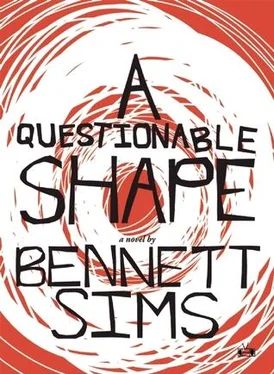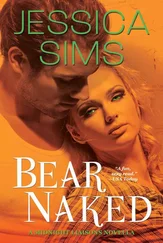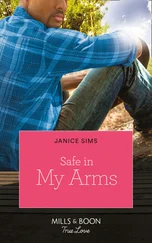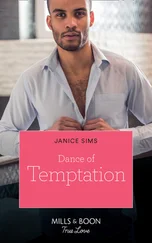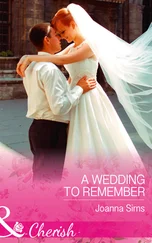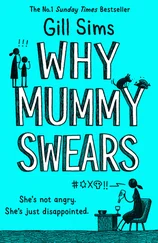36
How often, before this epidemic, would Mazoch or I have witnessed an image of cannibalism, or of a disemboweled man still walking? Maybe once a year, when we watched a horror movie or some samurai seppuku scene? Now these and similar sights are broadcast semi-nightly and are indissociable from the undead. We recognize the undead by the posture of their feeding (the way that packs of them will hunch over the torn-open stomach of a corpse, sifting its intestines through their fingers), as well as by their cadaverous imperviousness to dismemberment: the way that one, cut in half at the waist, will drag itself forward by dogged fistfuls of grass. In images like these we recognize the undeath in them. Compare that recognition with the kind we feel when we see them performing echo-practic rituals of motor instinct — when, watching them sit in their cars or drag razors across their rotting cheeks, we might halfway mistake them for human — and it’s no wonder that Mazoch’s preference lies with the latter.
37
He even referred me to a relevant passage of Wordsworth: ‘[We] grieved/ To have a soulless image on the eye/That had usurped a living thought/ That never more could be’ ( The Prelude ). In context Wordsworth is describing the anticlimactic Alps, but it really would be grievous for Mazoch to have the soulless image of his undead father branded irreversibly on the eye, to have some trademark gesture of undeath — his father’s teeth tearing into warm flesh — usurp the living memory of the man. (Mazoch’s bibliomantic ability to flip through old poems and find auguries of undeath has never failed to impress me, so one day I tried flipping through his copy of The Prelude myself. Within minutes — and as if guided — I stumbled upon the following passage, unmarked by Mazoch: ‘And, on the shape of that unmoving man,/His steadfast face and sightless eyes, I gazed,/ As if admonished from another world.’ Reading it, I caught my breath. It really did seem unmistakable as a description, not just of any encounter with any undead, but of my own with the jogger. In context, of course, Wordsworth is simply describing his encounter with a blind beggar, and the passage’s applicability to undeath can be only an artifact of hindsight bias: an open-and-shut case of poetic postdiction.)
38
At this late date in the epidemic, it still strikes me as strange that I can enjoy such simple pleasures — the warmth of sunlight on my arms, the freeing bitterness of this beer — when chances are that someone is being bitten and infected not very far from here. This seems to be a special talent of Louisianans: how citizens’ sensibilities can remain unsynchronized with their city’s. When a hurricane heads for New Orleans, the city shuts down: schools close, work is canceled, news stations broadcast storm warnings. But all that the people do to prepare is stockpile alcohol. They celebrate as on any other holiday: they drink drinks called Hurricanes! One can detect in Louisianans’ reactions to disasters like this a reckless kind of hysteresis, as if — even after sociocultural institutions have acknowledged an apocalypse, and even after larger fields and forces of normalcy have withdrawn — there remains this ferromagnetic lag in the people themselves, who behave as if nothing has changed, who persist, charged with quotidian energies in an apocalyptic system. Who drink Hurricanes and barbeque brisket beneath skies blackened with ominousness. It is this same native trait, no doubt, that enabled Mazoch to enjoy his chicken breast at Louie’s this afternoon, chewing mouthful after insouciant mouthful.
39
Rachel, to clarify, doesn’t actually think that her undead self would experience happiness at these sites, only that past happiness would be a motivation for return. She doesn’t believe that the infected are capable of appreciating their reasons for returning, or of taking joy in mortal spaces. In fact, she finds this aspect of undeath almost unbearably sad, and she even remarked, earlier this afternoon, as we were beginning our lists, ‘What’s sad is that I’ll be going to all these places without ever even really seeing them.’ Like Matt, Rachel associates undeath with blindness, though not clinical or even phenomenological blindness so much as, maybe, existential. She means by this those times in your life when you’re your worst self, soulless and unobservant, reverting to a kind of robotic autopilot, in which you move through the world in a daze, without noticing any of the details that you usually take so much pleasure in noticing. That’s what she expects being undead to be like. And what’s sad, she says, about the idea of being stuck like this in undeath, is that the sites you’ll be returning to will be places from the exact opposite times in your life. Places like Tunica, where you were most awake and most attentive, most in love with the world and filled with joy for phenomena, where you were so alive and alert to detail that the scenery has been seared — eidetically, nostalgically — into your unconscious. The sad irony of undeath, for Rachel, is that your worst self is the one seeking out your best self ’s sites. You get to return to the regions of presence, the places in your life where you were most present, but you have to haunt them as a vassal of absence.
40
That is yet another way that I sometimes imagine undeath: like being lost in a labyrinth, in the maze of the underworld. Staggering down infinite hallways of smoky shade. What first inspired this comparison, I suspect, was simply the morpheme ‘maze’ in Mazoch’s name. It was probably a free-associative, onomastic accident that I began thinking about labyrinths at all. But it makes a certain kind of sense, when I stop to consider it. Classically speaking, labyrinths are places where fathers deposit their monstrous sons: mazes where they bring their sons to get lost, dungeons to disinherit their minotaurs in. And now it’s Matt who’s in search of his monstrous father, the minotaur Mr. Mazoch, who is himself banished to a kind of maze, the Cretan corridors that he accretes around himself as he wanders across Baton Rouge. While Matt pursues him, I ride along as his guide, leading him deep into the labyrinth and back again, my folder of Mapquest directions like some Ariadne’s thread. Meanwhile Mr. Mazoch, if the neurologists are to be believed, has maps of his own to follow: he isn’t lost at all.
41
The trees had turned a vespine yellow, as if trying to terrify what would eat them. This was Rachel’s suggestion, anyway, her explanation for the world’s lushness: that it had to color-code itself like a bug. What an autumn afternoon needed most, she said, was to flare bold in the eye of its predator, the encroaching winter. The hues of the sky and the trees would deepen accordingly, in keeping with the aposematism of the season.
42
Or even somewhere else altogether. In addition to the sites Matt doesn’t want to visit (the high school, the childhood home), you also have to factor in the unknown quantities, any places Matt hasn’t thought of yet, plus the ones he has no way of even knowing about. There are bound to be certain epistemological blocks and search biases that have been acting as blinders from the outset, preventing him from conceiving of every potentiality. And this is a serious obstacle. If every Thursday Mr. Mazoch frequented a gentleman’s club, it’s doubtful that Matt would know about it: not only because Mr. Mazoch never would have told him, but also because Matt, just as a matter of epistemological blockage, would be biased away from imagining it, from even entertaining it as a possibility.
43
‘Predate’ was the word Matt used in the diner, but it strikes me as uncomfortably loaded, and I prefer ‘precede.’ After the outbreak, it’s impossible to ignore the double meaning of ‘predate,’ its twinned temporal and carnivorous connotations. For what predates undeath in you (the past that becomes activated, your prior self’s muscle memories and habits and haunts) is what predates in undeath (preys, hunts, feeds, and so on upon).
Читать дальше
